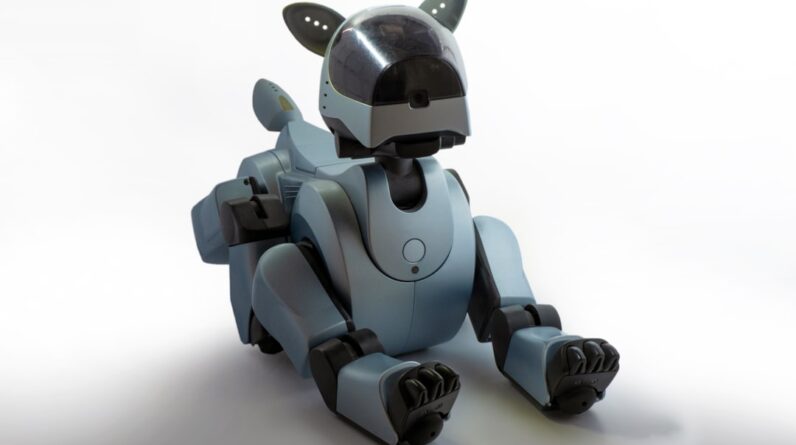As you step into the world of manufacturing, you may notice a significant transformation taking place, driven by the rapid advancements in artificial intelligence (AI). This technology is not merely a buzzword; it is reshaping the landscape of production processes, enhancing efficiency, and redefining the way businesses operate. AI in manufacturing encompasses a wide range of applications, from optimizing supply chains to improving product quality.
As you delve deeper into this subject, you will discover how AI is revolutionizing traditional manufacturing practices and paving the way for smart factories. The integration of AI into manufacturing processes is not just about automation; it represents a paradigm shift in how you approach production. By leveraging data analytics, machine learning, and robotics, manufacturers can make informed decisions that lead to increased productivity and reduced operational costs.
As you explore the various facets of AI in manufacturing, you will gain insights into its transformative potential and the myriad ways it can enhance your business operations.
Key Takeaways
- AI is revolutionizing the manufacturing industry by improving efficiency, productivity, and decision-making processes.
- The benefits of AI in manufacturing include predictive maintenance, quality control, supply chain management, and improved safety.
- Robotics and automation play a crucial role in smart factories, enhancing production processes and reducing human intervention.
- AI-driven predictive maintenance in manufacturing helps to identify potential equipment failures before they occur, reducing downtime and maintenance costs.
- AI has a significant impact on quality control in manufacturing by detecting defects, ensuring product consistency, and improving overall product quality.
The Benefits of AI in Manufacturing
Enhanced Productivity and Workforce Engagement
As a result, manufacturers can expect improved productivity and a more engaged workforce that feels empowered to contribute to innovation. AI enhances decision-making processes by providing real-time data analysis and insights, leading to a more proactive and responsive approach to manufacturing.
Data-Driven Decision Making
With AI, manufacturers have access to predictive analytics that can forecast demand trends or identify potential bottlenecks in the production line. This enables them to make proactive adjustments to their operations, minimizing downtime and maximizing output.
Staying Ahead of the Competition
The ability to respond swiftly to market changes is crucial in today’s fast-paced manufacturing environment. AI equips manufacturers with the tools necessary to stay ahead of the competition, ensuring they remain agile and competitive in an ever-changing market.
The Role of Robotics and Automation in Smart Factories
In the realm of smart factories, robotics and automation play a pivotal role in complementing AI technologies. As you navigate through these advanced manufacturing environments, you will encounter robots designed to perform tasks ranging from assembly to quality inspection. These machines are not only faster than their human counterparts but also exhibit a level of precision that significantly reduces errors.
By integrating robotics into your production processes, you can achieve higher levels of consistency and quality in your products. Furthermore, the collaboration between humans and robots is becoming increasingly seamless. You may find yourself working alongside collaborative robots (cobots) that are designed to assist rather than replace human workers.
This synergy allows for a more flexible production environment where tasks can be shared based on skill sets and capabilities. As you embrace this collaborative approach, you will likely witness an increase in overall productivity and a reduction in workplace injuries, as robots take on the more hazardous aspects of manufacturing.
AI-Driven Predictive Maintenance in Manufacturing
One of the standout applications of AI in manufacturing is predictive maintenance. Imagine having the ability to foresee equipment failures before they occur, allowing you to schedule maintenance at optimal times without disrupting production. By utilizing machine learning algorithms that analyze historical data and monitor real-time performance metrics, you can identify patterns that indicate potential issues.
This proactive approach not only extends the lifespan of your machinery but also minimizes costly downtime. As you implement AI-driven predictive maintenance strategies, you will find that your maintenance costs decrease significantly. Instead of adhering to a rigid maintenance schedule based on arbitrary timelines, you can tailor your maintenance efforts based on actual equipment performance.
This data-driven approach ensures that resources are allocated efficiently, ultimately leading to enhanced operational reliability and reduced expenses. The shift from reactive to proactive maintenance is a game-changer for manufacturers looking to optimize their operations.
The Impact of AI on Quality Control in Manufacturing
Quality control is another area where AI is making a profound impact. In traditional manufacturing settings, quality assurance often relies on manual inspections, which can be time-consuming and prone to human error. However, with AI-powered vision systems and machine learning algorithms, you can automate the quality control process, ensuring that every product meets stringent standards before it reaches the market.
These advanced systems can analyze images and detect defects with remarkable accuracy, allowing for immediate corrective actions if issues arise. As you adopt AI-driven quality control measures, you will likely see a reduction in waste and rework costs while simultaneously improving customer satisfaction through higher-quality products. The ability to maintain consistent quality at scale is essential for building brand loyalty and trust in today’s competitive marketplace.
AI-Enabled Supply Chain Management in Smart Factories
In the context of smart factories, AI also plays a crucial role in optimizing supply chain management. As you navigate the complexities of sourcing materials, managing inventory, and fulfilling orders, AI can provide valuable insights that enhance your decision-making processes. By analyzing vast amounts of data from various sources, including suppliers and market trends, AI enables you to forecast demand accurately and adjust your supply chain strategies accordingly.
Imagine having the capability to predict fluctuations in demand based on historical data and external factors such as economic indicators or seasonal trends. With this information, you can optimize inventory levels, reduce excess stock, and minimize carrying costs. Additionally, AI can help identify potential disruptions in your supply chain, allowing you to develop contingency plans that mitigate risks.
As you embrace AI-enabled supply chain management, you will find that your operations become more agile and responsive to changing market conditions.
Overcoming Challenges in Implementing AI in Manufacturing
While the benefits of AI in manufacturing are substantial, implementing these technologies is not without its challenges. One significant hurdle is the need for a cultural shift within your organization. As you introduce AI solutions, it is essential to foster an environment that embraces change and encourages collaboration between technology and human workers.
Resistance to change can hinder progress, so investing in training programs that equip your workforce with the necessary skills is crucial. Another challenge lies in data management. For AI systems to function effectively, they require access to high-quality data from various sources within your operations.
You may need to invest in data infrastructure and ensure that your data collection processes are robust and reliable. Additionally, addressing concerns related to data privacy and security is paramount as you navigate this digital transformation journey. By proactively tackling these challenges, you can position your organization for success in the age of AI.
The Future of AI in Manufacturing: Opportunities and Trends
Looking ahead, the future of AI in manufacturing is filled with exciting opportunities and emerging trends that promise to reshape the industry further. As technology continues to evolve, you can expect advancements in areas such as edge computing and the Internet of Things (IoT), which will enhance the capabilities of AI systems. These innovations will enable real-time data processing at the source, allowing for even more responsive manufacturing processes.
Moreover, as sustainability becomes an increasingly important focus for consumers and businesses alike, AI will play a vital role in promoting eco-friendly practices within manufacturing. From optimizing energy consumption to reducing waste through smarter resource management, AI technologies will help you align your operations with sustainability goals while maintaining profitability. In conclusion, as you explore the multifaceted world of AI in manufacturing, it becomes clear that this technology is not just a trend but a fundamental shift that will define the future of production.
By embracing AI-driven solutions across various aspects of your operations—from predictive maintenance to quality control—you can unlock new levels of efficiency and innovation that will set your business apart in an ever-evolving marketplace. The journey may come with challenges, but the rewards are well worth the effort as you position yourself at the forefront of this technological revolution.
AI in Manufacturing: the Dawn of the Smart Factory is an exciting development in the field of artificial intelligence. This article explores the synergies between artificial intelligence and the Internet of Things, highlighting how these technologies can work together to create more efficient and productive manufacturing processes. For more information on the different types of AI and the potential impact on humans if AI takes over, check out this related article and this one.
FAQs
What is AI in manufacturing?
AI in manufacturing refers to the use of artificial intelligence technologies such as machine learning, computer vision, and natural language processing to automate and optimize various processes in the manufacturing industry.
What are the benefits of AI in manufacturing?
Some of the benefits of AI in manufacturing include improved efficiency, predictive maintenance, quality control, and supply chain optimization. AI can also enable the development of smart factories, where machines and systems can communicate and make decisions autonomously.
How is AI being used in manufacturing?
AI is being used in manufacturing for various applications such as predictive maintenance, quality inspection, demand forecasting, and autonomous robotics. It is also being used to optimize production processes and improve overall operational efficiency.
What is a smart factory?
A smart factory is a manufacturing facility that utilizes advanced technologies such as AI, IoT, and robotics to automate and optimize the production process. In a smart factory, machines and systems are interconnected and can make decisions autonomously, leading to increased productivity and efficiency.
What are some examples of AI applications in manufacturing?
Some examples of AI applications in manufacturing include predictive maintenance to reduce downtime, quality inspection using computer vision, autonomous robots for material handling, and demand forecasting to optimize production planning. AI is also used for process optimization and energy management in manufacturing facilities.






